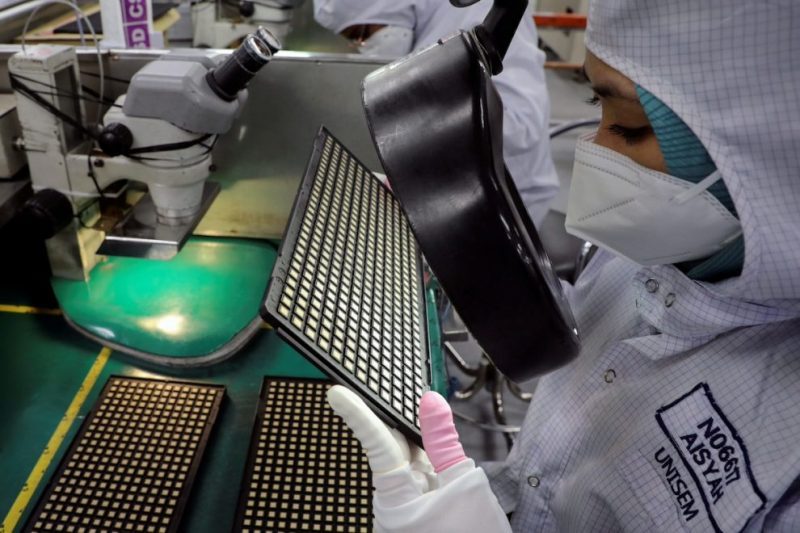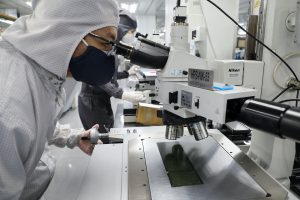A Taiwanese semiconductor technology company’s $4.5 billion deal to acquire a German rival collapsed on Tuesday after a deadline for Berlin to approve the bid passed without a decision.
The demise of GlobalWafers‘ attempt to buy Siltronic was welcomed by German politicians, who said the country had to protect its security interests.
The Taiwanese firm makes wafers, one-millimetre-thick sheets of silicon necessary for the manufacturing of semiconductors that are the backbone of the global technology sector.
GlobalWafers had signed an agreement with Siltronic in December 2020 to acquire all of the German company’s outstanding shares at a 10% premium worth roughly $4.5 billion (4.0 billion euros).
But the deal needed regulatory approval from Berlin, which was not obtained by the January 31 deadline.
“Therefore, the takeover offer by GlobalWafers and the agreements which came into existence as a result of the offer will not be completed and will lapse,” GlobalWafers said.
CEO Doris Hsu called it “disappointing” and said the Taiwanese company will work to “analyse the non-decision” by Berlin.
A spokeswoman for the German Ministry for the Economy and Climate said in a statement that “not all the necessary investment review steps could be completed before the end of the period.”
Siltronic said GlobalWafers will pay the German company a termination fee of 50 million euros ($56.1 million).
Rattled by security concerns
German politicians voiced support for the government’s decision to drop the deal, according to local business newspaper Handelsblatt.
“We do not gain technological sovereignty by selling off our silverware,” said Hannes Walter, vice chairman of the Economics Committee.
Julia Kloeckner, an economic policy spokeswoman for centre-right CDU/CSU parliamentary group, said the move was right to “keep our security interests in mind.”
Governments are increasingly scrutinising huge takeovers in the global technology industry, rattled by growing national security concerns and supply chain crunches due to the pandemic.
US regulators filed a December lawsuit to block a $40 billion merger of graphics chip star Nvidia with mobile chip tech powerhouse Arm Ltd.
The Federal Trade Commission said it was fearful it could provide one of the largest semiconductor companies with control over computing technology and designs “that rival firms rely on to develop their own competing chips.”
• AFP with additional editing by Jim Pollard
ALSO ON AF:
Taiwan ‘Should Destroy TSMC’ If China Invades: US Strategists
US Moves to Stop Chipmaker Nvidia’s $40bn Merger with UK’s Arm
Musk Signals Concern Over Nvidia Deal for UK Chipmaker – Telegraph





















